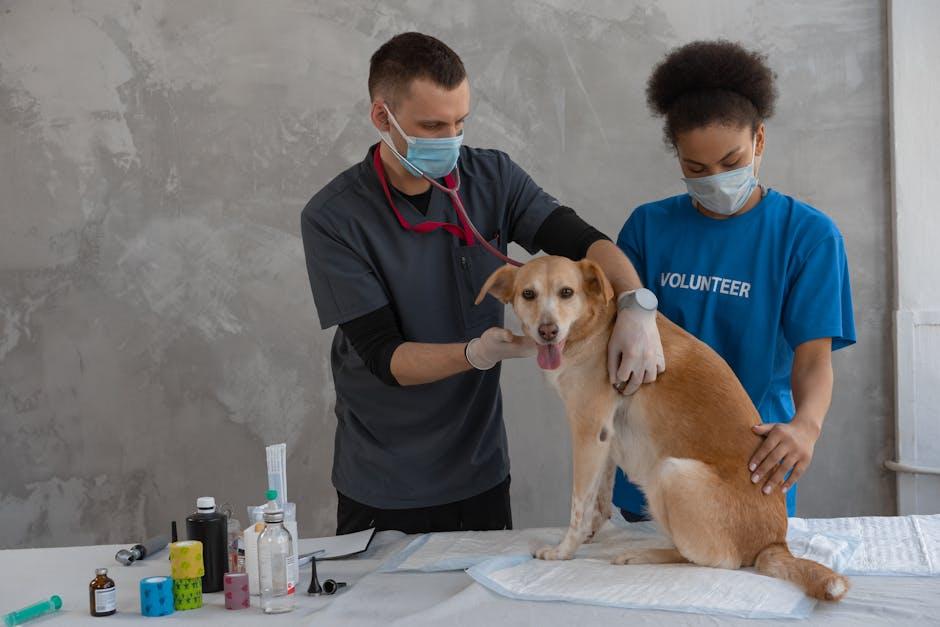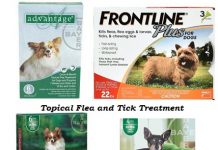Welcoming a new puppy into your home is an exciting and joyous experience, filled with wagging tails, playful antics, and boundless energy. However, along with the delight of puppyhood comes the responsibility of ensuring your furry friend stays healthy and thrives in their new environment. As a pet owner, being informed about the latest health concerns that could affect your puppy is crucial in providing the best care possible. This year, several key issues have emerged that require your attention and proactive management. In this article, we will explore these concerns, offering practical advice and insights to help you navigate the early stages of your puppy’s life with confidence and warmth. Whether you’re a first-time pet parent or an experienced dog owner, staying informed about your puppy’s health needs is essential to fostering a happy and healthy companion.
Recognizing Early Signs of Illness in Your Puppy
Keeping a vigilant eye on your puppy’s health is crucial, especially as they explore and grow. Puppies, with their boundless energy and curiosity, can sometimes mask early signs of illness. To ensure your furry friend stays healthy, watch for these subtle indicators:
- Changes in Appetite: A sudden lack of interest in food or water can be an early warning sign. Puppies usually have a hearty appetite, so any deviation should be noted.
- Behavioral Shifts: Look out for lethargy or excessive sleeping. If your usually playful pup becomes disinterested in their favorite toys or activities, it might be time for a check-up.
- Gastrointestinal Issues: Vomiting or diarrhea, while common in puppies, can indicate something more serious if persistent. Always monitor the frequency and seek veterinary advice if it continues.
- Respiratory Concerns: Pay attention to coughing, sneezing, or nasal discharge. These could be signs of a respiratory infection or other underlying issues.
Remember, your puppy’s health can change rapidly. Regular vet visits and staying attuned to these signs will help ensure your puppy’s well-being and happiness throughout the year.

Understanding Common Puppy Allergies and How to Manage Them
Puppies, much like humans, can suffer from allergies that affect their health and well-being. Recognizing the signs and knowing how to manage these allergies can ensure your furry friend stays healthy and happy. Common symptoms to look out for include excessive scratching, sneezing, and gastrointestinal issues. Puppies might also develop skin irritations, such as rashes or hot spots, which can cause significant discomfort.
To effectively manage these allergies, it is essential to identify the triggers. Here are some common allergens and management strategies:
- Environmental Allergens: Dust, pollen, and mold can trigger allergic reactions. Regular cleaning and using air purifiers can help minimize exposure.
- Food Allergies: Ingredients like beef, chicken, or grains may cause allergies. Consider a hypoallergenic diet or consult with a vet for an elimination diet.
- Flea Allergies: Flea bites can cause severe itching. Regular flea prevention treatments and grooming are crucial.
Understanding these common allergies and their management will help you provide the best care for your puppy, ensuring they grow up healthy and content.

Essential Vaccinations and Preventative Care for Your Furry Friend
Ensuring your puppy receives the right vaccinations and preventative care is crucial for their lifelong health and happiness. It’s important to start their vaccination schedule early, usually between six to eight weeks of age, and continue with booster shots as recommended by your veterinarian. Core vaccinations are essential and typically include protection against diseases such as parvovirus, distemper, hepatitis, and rabies. Additionally, depending on your location and lifestyle, you might consider non-core vaccinations like those for Lyme disease or Bordetella, especially if your puppy frequents dog parks or groomers.
Besides vaccinations, there are other preventative measures to consider. Regular flea and tick prevention is vital to protect your furry friend from parasites that can lead to more serious health issues. Heartworm prevention is another critical component, especially if you live in an area where mosquitoes are prevalent. Make sure to schedule regular vet check-ups to monitor your puppy’s growth and catch any potential health concerns early. A balanced diet, plenty of exercise, and socialization are also key to fostering a robust immune system. By staying proactive with your puppy’s health, you’re not only safeguarding their well-being but also strengthening the bond you share.
- Core Vaccinations: Parvovirus, Distemper, Hepatitis, Rabies
- Non-core Vaccinations: Lyme Disease, Bordetella
- Preventative Measures: Flea & Tick, Heartworm Prevention
- Routine Vet Check-ups
- Balanced Diet and Exercise

Nutrition Tips for Supporting Your Puppys Immune System
Ensuring your puppy has a robust immune system is essential for their overall health and happiness. A well-balanced diet is the cornerstone of a strong immune system, so consider incorporating the following tips into your puppy’s nutrition plan:
- High-Quality Proteins: Choose a diet rich in high-quality proteins such as chicken, beef, or fish. These proteins are crucial for building strong muscles and supporting cellular functions.
- Antioxidant-Rich Foods: Incorporate fruits and vegetables like blueberries, carrots, and spinach. These foods are packed with antioxidants that help combat free radicals and reduce inflammation.
- Omega-3 Fatty Acids: Include sources of omega-3s, such as flaxseed or fish oil, to support a healthy coat and reduce inflammation, which is beneficial for immune health.
- Probiotics: Adding probiotics can aid digestion and enhance your puppy’s gut health, which is closely linked to immune function. Consider supplements or probiotic-rich foods like yogurt.
- Hydration: Always ensure your puppy has access to fresh, clean water. Proper hydration is vital for maintaining a healthy immune response.
By focusing on these nutritional elements, you can provide your puppy with the best foundation for a healthy immune system, ready to take on the challenges of their growing world.
To Conclude
ensuring the health and well-being of your puppy requires vigilance, care, and a proactive approach. By staying informed about the common health concerns that puppies may face this year, you can take the necessary steps to prevent potential issues and provide your furry friend with a strong foundation for a healthy life. Remember, regular veterinary check-ups, a balanced diet, and a safe, loving environment are key components in nurturing your puppy’s growth and happiness. As you embark on this joyful journey of puppy parenthood, trust your instincts, seek professional advice when needed, and cherish every playful moment. Your attentive care today will pave the way for a lifetime of wagging tails and joyous companionship.
















